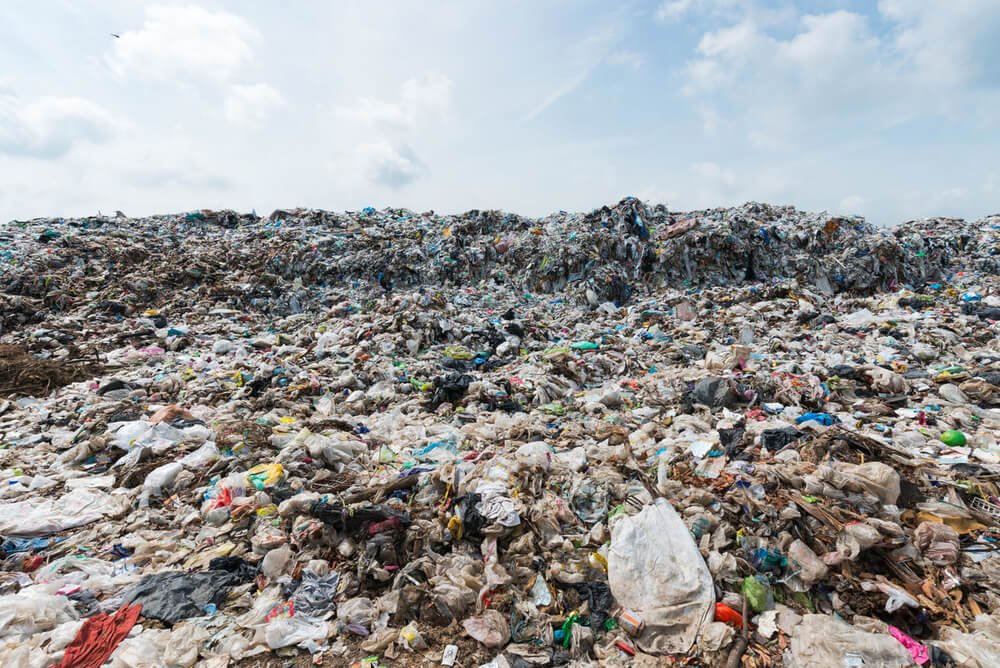
Almost all plastic is derived from materials (like ethylene and propylene) made from fossil fuels (mostly oil and gas). The process of extracting and transporting those fuels, then manufacturing plastic creates billions of tones of greenhouse gases. For example, 4% of the world’s annual petroleum production is diverted to making plastic, and another 4% gets burned in the refining process.
The smaller particles (known as micro plastics) that break off and disperse are also unwittingly ingested by marine animals, including plankton, and some of the fish we eat. And why should we care about plankton? Well these tiny powerhouses play a critical role in taking carbon dioxide from the atmosphere and water and sequestering it in deep ocean sinks. The full effects of this are still being studied, but the essential premise is this: when micro plastics threaten plankton populations, more carbon will re-enter the waters and atmosphere.
Given that our oceans have successfully absorbed 30-50% of atmospheric carbon produced since the start of the industrial era, it’s easy to see just what’s at stake. And this leads us back to the plastic consumption on land that is driving this mounting plastic pollution crisis.
Because the world’s growing production of plastics – about 100 million tonnes annually – is not just clogging landfill sites and threatening our oceans and marine life; it’s accelerating climate change.
Plastic is one of the most persistent pollutants on Earth. It’s made to last – and it does, often for 400 years or more. And at every step in its lifecycle, even long after it has been discarded, plastic creates greenhouse gas emissions that are contributing to the warming of our world.
A report by the Center for International Environmental Law, released in May 2019, concluded that the impact of plastic production on the world’s climate this year will equate to the output of 189 coal-fired power stations. By 2050, when plastic production is expected to have tripled, it will be responsible for up to 13% of our planet’s total carbon budget – on a par with what 615 power stations emit.
Plastics have been used in our everyday life like plates, plastic cups for birthday parties, your coffee cup, shampoo containers and etc. However plastic is very dangerous to the environment and can cause global warming if we burn it which produces methane. Plastic is non-biodegradable which means it cannot be broken down very easily. Since its Non-biodegradable, it pollutes the ocean where organisms eat it. Plastic is a huge threat but also an opportunity for making things so is there any eco-friendly material that can replace plastic? Are there any countries taking action on this? How can we individuals take action on this? Should plastic be banned?
Is there any eco-friendly material that can replace plastic?
Yes there are multiple materials and elements, the reason we don’t use much of other materials and only use plastic because of how durable it is, how ductile and malleable it is and how it prevents corrosion. However if we use other materials and test them to see which is better, it would make a great change.
A material called Bakelite was invented in 1907 and was really good because it was not easily melted if was it was heated and you could make it any shape. It wasn’t that the people weren’t using it they were but the problem was that it wasn’t flexible and the packaging was very bad if Bakelite material was used. There are many other materials like glass, natural fibre cloth, stainless steel and etc.
There are many countries that are taking action on this like Canada who have banned single used plastic, Rwanda who will put a life sentence of 6 months if a person is carrying a plastic item, India banning plastic soon, Kenya ban plastic, Germany plastic ban and many more. 77 countries according to statistics have banned plastic but it’s not enough. If more countries participate on this then more ideas can be shared on how we can eliminate plastic.
There are many acts we can do which can improve our environment like using reusable bags when we do groceries, using metal straws rather than using plastic straw, using glass cups instead of plastic cups. We can inform other people by using social media, interviewing activists, making movements about how plastic is harmful and etc.
In my opinion, plastic should be banned and shouldn’t be used at all. There are a lot of countries who have banned it but it’s not enough because the plastic pollution is still there. Plastic has all of disadvantages like clogging oceans, seas, lakes and etc. Animals eat the plastic which we leave in the ground and when they eat this they die. Since its non-biodegradable its can decomposed for a very long time.

